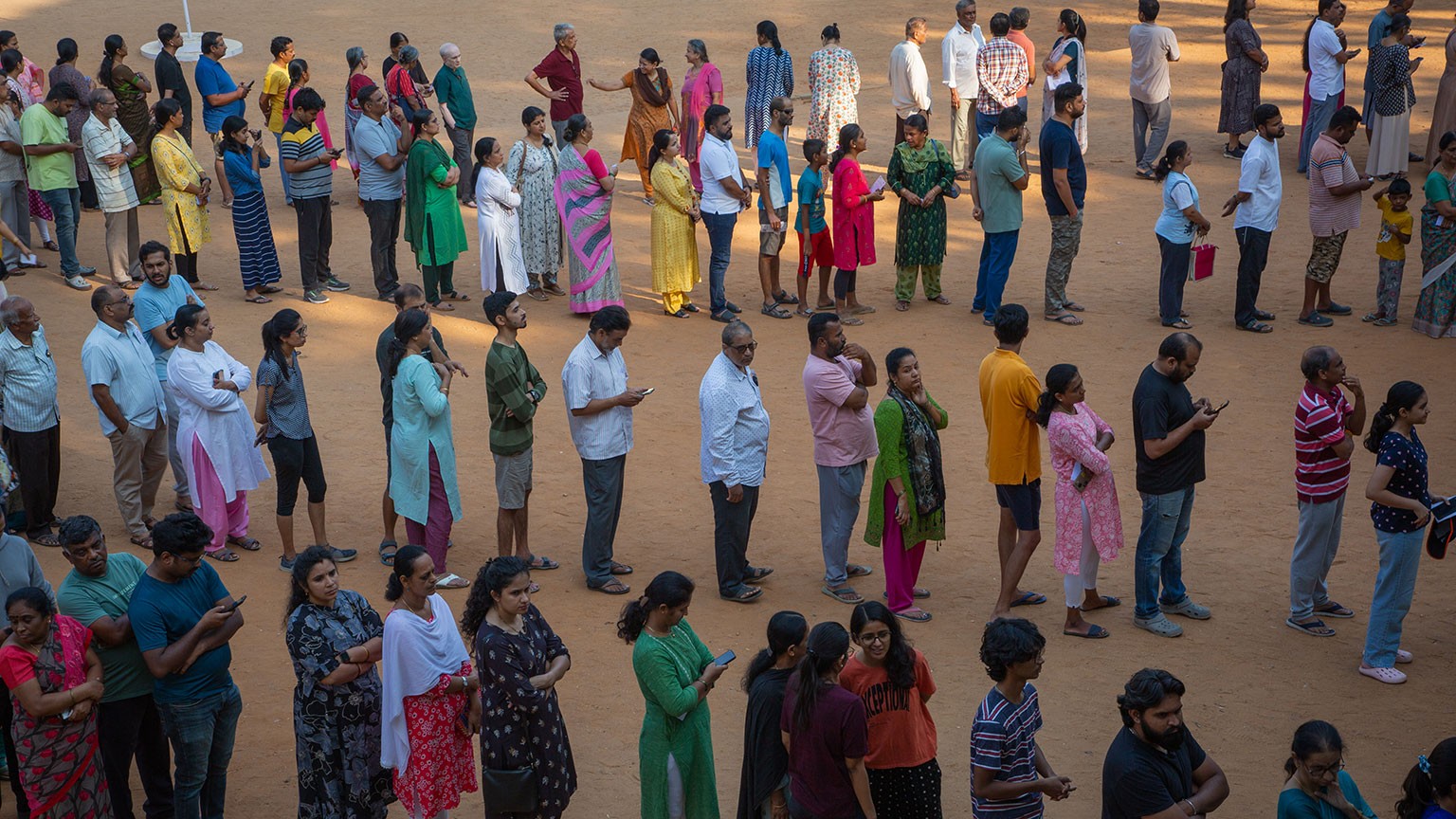A rising star
The ballot comes at a time of rapid ascendancy for the South Asian nation, which has one of the world's fastest-growing economies, and the biggest population. The International Monetary Fund predicts that by 2027, India's economy, now ranked fifth, will climb to third place. A dramatic improvement in life expectancy means the population is set to keep rising, too, and will likely pass 1.6 billion by 2050.
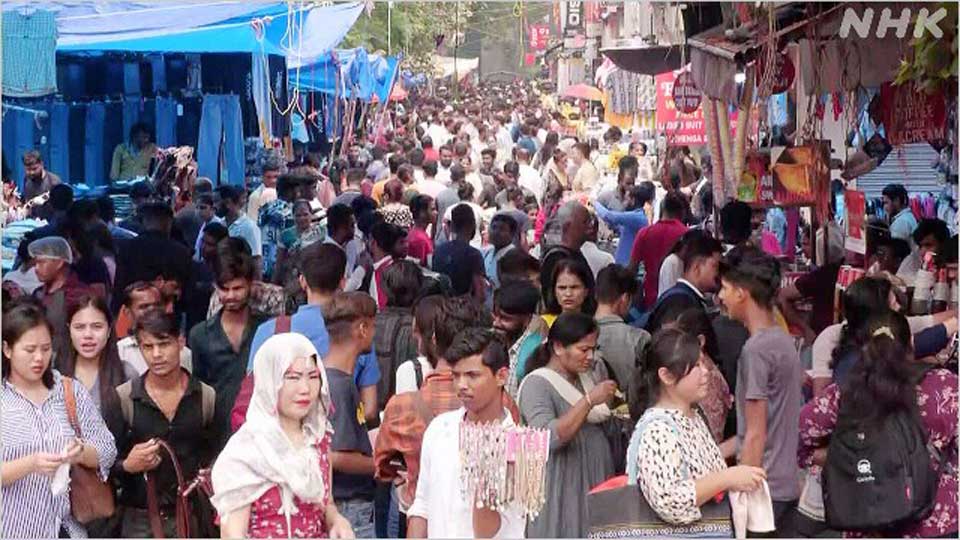
Multiple religions
India is a country of multiple ethnicities, languages and religions. For example, the country's official language is Hindi, but only about 40 percent of the population speaks it. It is among 22 languages that are constitutionally recognized.
In terms of religion, the 2011 census shows the majority of people (80%) identify as Hindu, followed by Muslim (14%), Christian (2%), and Sikh (1.7%). Although India is the birthplace of Buddhism, only 0.7% of the population are adherents.
How voting works
The last general election, in 2019, involved more than 670 parties and more than 8,000 candidates.
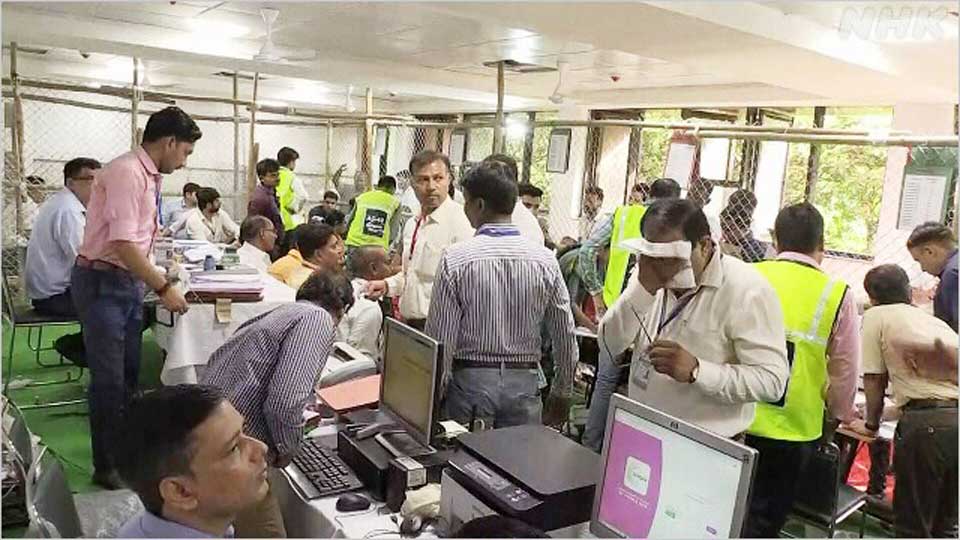
Out of the thousands of candidates expected to stand in 2024, just 543 will win a seat in the Lok Sabha, the lower house of parliament. The president will then nominate a couple of people to fill the remaining two seats in the chamber.
The successful candidates won't be known until June 4, three days after the seventh and final phase of polling wraps up at electronic voting machines stationed throughout more than one million booths across the country.
Aiming for a third term
Prime Minister Narendra Modi is seeking a third term. His supporters point to his economic record. Before becoming prime minister in 2014, he spent 13 years as chief minister of his home state, Gujarat, where he earned a reputation for driving through infrastructure upgrades, slashing red tape for business, and overseeing strong growth in the local economy. Gujarat became known as the only state in India to rid itself of power outages.
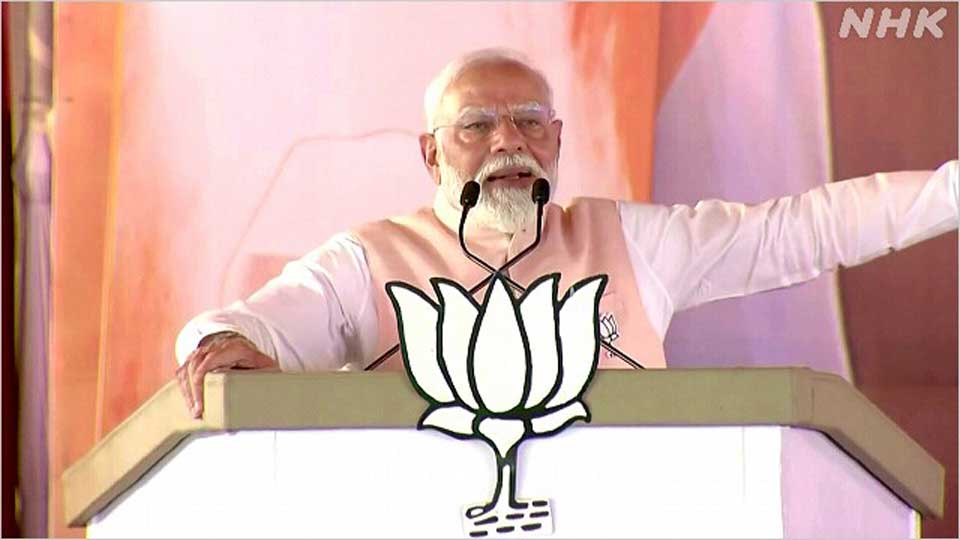
As national leader, he's credited with launching the "Make in India" initiative to boost foreign investment, pushing a digital shift in administrative procedures, simplifying India's once complex tax system, and increasing spending on the semiconductor industry and other advanced technology.
But opposition parties have been increasingly critical of Modi for his Hindu-leaning policies. Tensions most recently came to a head in January, when Modi inaugurated a Hindu temple on the spot where a mosque had stood for more than 400 years ― until it was torn down by Hindus in 1992.
Contender to the crown
Leading the charge to topple the Modi administration is Rahul Gandhi, the de facto leader of India's main opposition party the Indian National Congress (INC). His focus is the country's worsening youth unemployment, rising prices, and widening economic disparities.
Gandhi is the scion of arguably India's most powerful political dynasty. His great-grandfather was Jawaharlal Nehru, the first prime minister of independent India. His grandmother, Indira Gandhi, and father, Rajiv Gandhi, also had stints as prime minister.
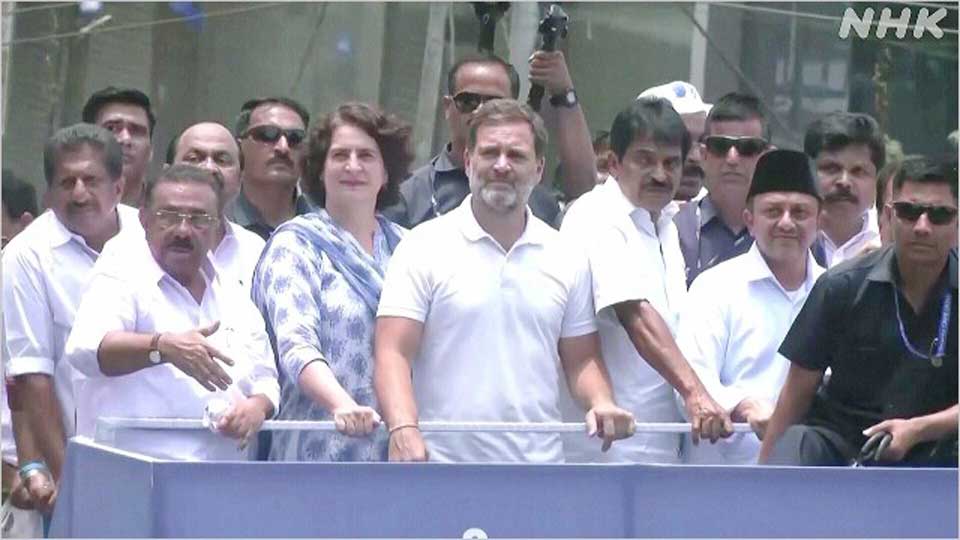
Opposition parties have formed a coalition to challenge the ruling BJP. But one of its key figures, Arvind Kejriwal, was arrested in March in connection with corruption allegations. While the opposition parties criticize the authorities for clamping down, the Modi administration claims legitimacy.
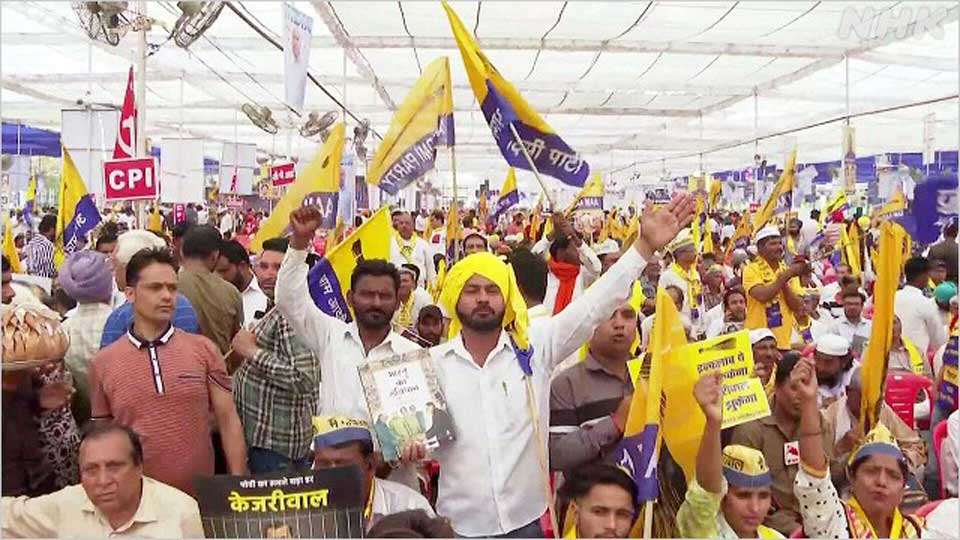
What voters are considering
The world's biggest democracy has held regular elections since winning independence in 1947. But this time round, says India watcher Ito Toru, a professor at the National Defense Academy of Japan, "it will be interesting to see whether voters accept the results as free and fair."
"Opinion polls show that the public is becoming more skeptical about the Election Commission. There's a growing number of people who suspect that the voting machines are manipulated. I'm concerned that the losing side may seize on this conspiracy to insist the results are invalid."
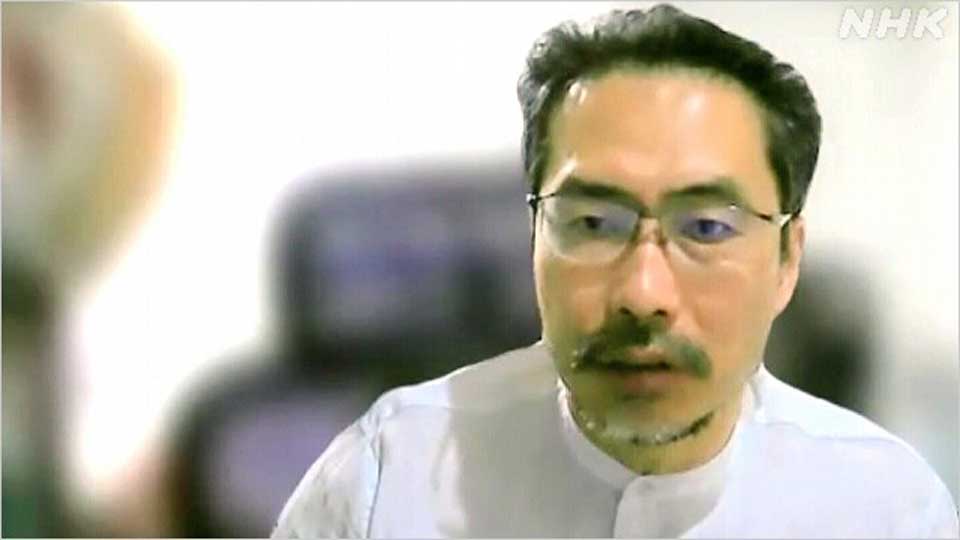
A widely anticipated win for Modi's BJP will mean one of two things, he predicts.
"One possibility is that India will deepen its Hindu-nationalist line," he says. "And the other is that it will focus more on making the country a world power. In order to do that, India will have to conform to some extent to the global order revolving around the West, otherwise it will be difficult to attract foreign investment."
"I think there's a chance India can also improve relations with China through investment. Modi may take a pragmatic approach, and curb nationalist fervor to pursue diplomatic and economic reforms. He's already won the trust of nationalists ― so if anyone can pull it off, it's him."
